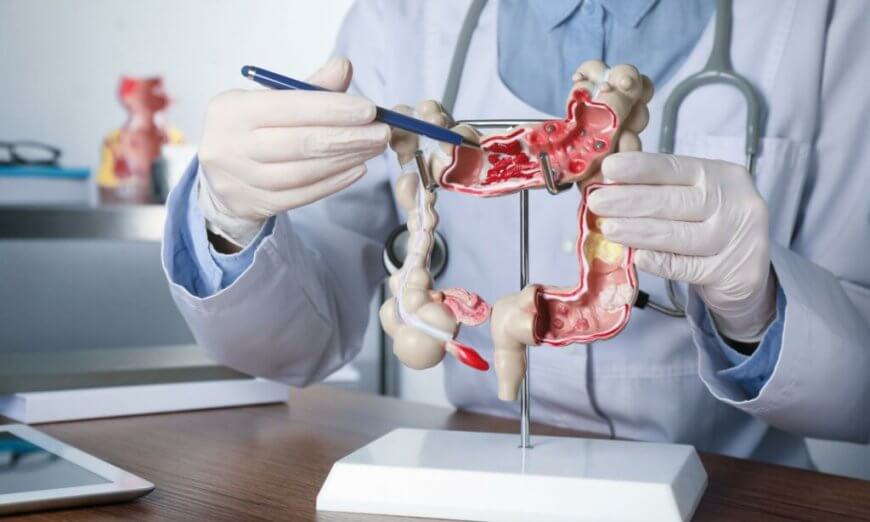A gastroenterologist is a doctor specializing in the digestive tract. They diagnose and treat diseases of the biliary tree, digestive tract, and esophagus. They can help with a variety of problems, including IBS and GERD. They also treat patients with conditions like reflux esophagitis, which occurs when stomach contents back up into the esophagus.
Treatment of colorectal cancer
Treatment for colorectal cancer varies based on the type of cancer and the stage of the disease. It is important to discuss possible side effects and benefits with your doctor before choosing a treatment plan. Your doctor may work with other specialists to choose the best treatment option for your condition. It is important to discuss all treatment options and ask as many questions as you need.
Surgery is the most common form of treatment for colorectal cancer. It involves cutting a hole in the abdomen and inserting small instruments with cameras and video. The doctor can view the colon on a monitor and take samples from lymph nodes. A polyp may be so enormous that it cannot be removed by a colonoscopy. In this situation, a surgeon will conduct a partial colectomy, which involves removing a section of the cancerous colon and reconnecting it to the rest of the healthy colon or rectum.
Drug therapy is another option for colorectal cancer patients. These medications include anti-inflammatories, immune system modulators, and probiotics. Patients may also undergo surgery to remove hemorrhoids. Pelvic floor physical therapy is also an option for people with rectal pain, fecal incontinence, or a history of rectal cancer. If surgery is not possible, colorectal cancer patients can undergo clinical trials to find a treatment that works for them.
Treatment of hemorrhoids
Hemorrhoids are common conditions that cause abdominal pain and discomfort. They are most commonly caused by straining during bowel movements. Other causes include chronic diarrhea and constipation. Pregnancy, obesity, and sitting on the toilet for long periods can also cause abdominal pressure. A gastroenterologist can treat hemorrhoids without surgery. He will also provide hemorrhoid management counseling, which may include changes to your diet and habits.
If bleeding occurs during bowel movements, it is not normal and may require further examination with a flexible scope. Moreover, a gastroenterologist can also perform an endoscopy to evaluate the cause of hemorrhoids. If your hemorrhoid is chronic and reoccurring, your gastroenterologist may recommend CRH banding, a minimally-invasive procedure to treat hemorrhoids. The procedure can be performed in a single office visit and requires no special preparation or downtime.
Sclerotherapy is an injection of a sclerosant into the hemorrhoids. The sclerosant triggers a reaction in the tissues and vessels surrounding hemorrhoid. The resulting tissue destruction causes protein coagulation and inflammation. This procedure is most effective in treating small, bleeding hemorrhoids. Two randomized controlled trials showed success rates ranging from 67% to 96%. Recent studies show similar results.
Treatment of constipation
Treatment of constipation by a gastroenterologist is essential if you want to prevent complications and restore regularity in your bowel movements. Constipation is often accompanied by various symptoms, including loss of appetite, bloating, and painful bowel movements. During an initial consultation, your gastroenterologist will examine your symptoms and perform diagnostic tests to determine the underlying causes. Your doctor may also recommend a colonoscopy to determine if there is an obstruction.
Treating constipation by a gastroenterologist often involves a combination of lifestyle changes and medications. For example, dietary changes should include increasing your fiber intake. Fiber-rich foods include fruits, whole-grain bread, and vegetables. You should also drink plenty of fluids and exercise regularly. Exercise is especially helpful for people with constipation, as it stimulates the muscles in the colon.
Changing your diet is an effective way to treat constipation since it can speed up bowel movements. However, if diet changes are not enough, the gastroenterologist may recommend other treatment methods.
Treatment of esophageal cancer
Treatment for esophageal cancer varies based on the type and stage. It may require surgery or an endoscopic procedure. More advanced cases may require more aggressive treatments. Patients may have difficulty swallowing and may require a feeding tube.
Patients with early-stage esophageal cancer have a high chance of surviving. Advanced-stage esophageal cancer is usually treated with a combination of chemotherapy and radiation. The survival rate is based on the amount of cancer at the surgery’s time and the treatment’s response. However, other factors like the surgeon’s experience and the center’s experience are also important.
Treatment for esophageal cancer should begin as early as possible. Early-stage symptoms often go unnoticed and can be mistaken for other conditions. Symptoms include difficulty swallowing, chest pain, or a feeling that food is stuck in the esophagus. As cancer grows, swallowing becomes increasingly painful and may lead to choking.


